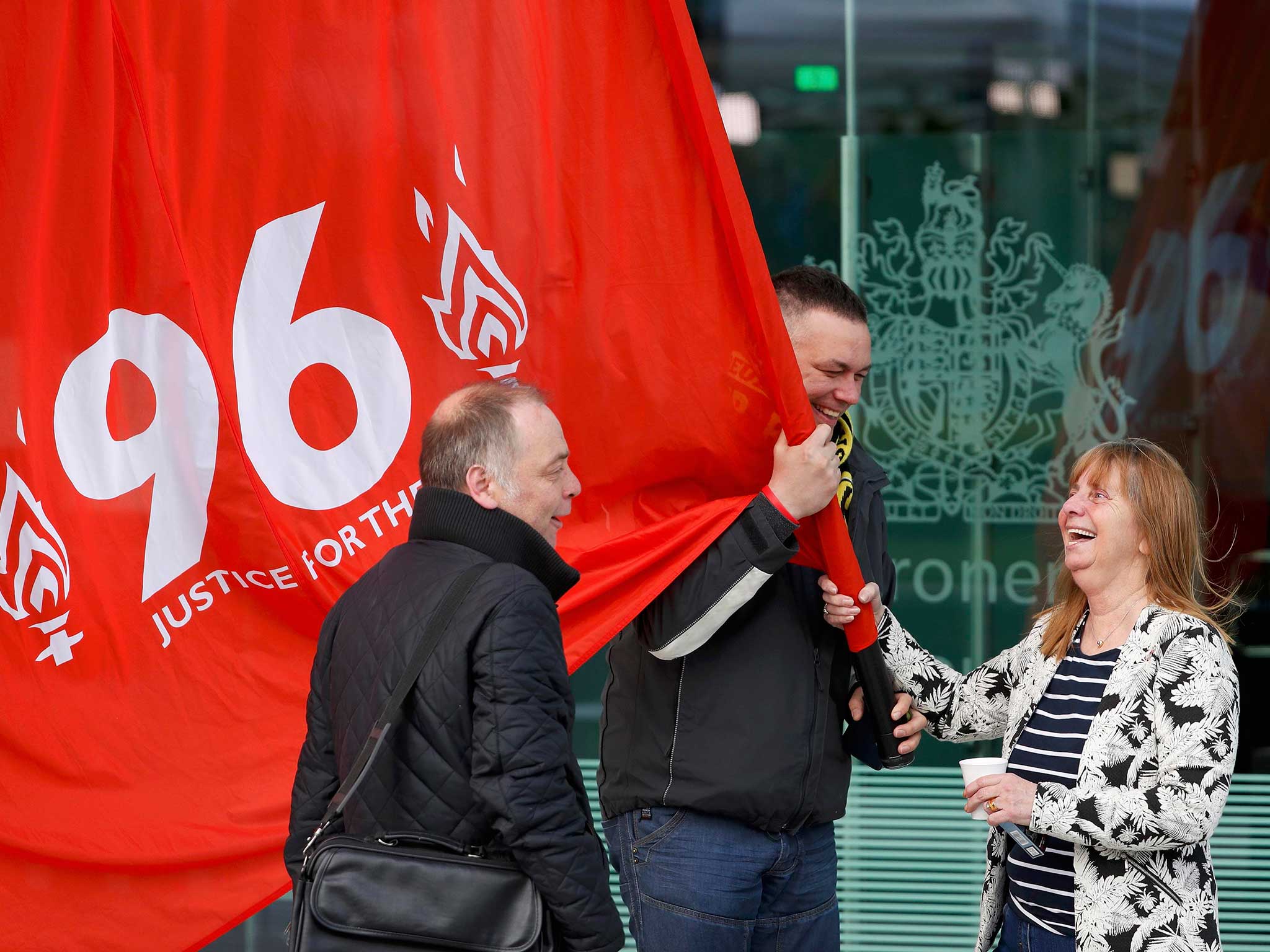I lost a school friend in the Hillsborough disaster. Today's ruling will silence those who told Liverpool to 'move on'
That Monday morning there was the unnatural absence of sound, as teenagers were terrified into silence by learning the death of a fellow pupil. Now there is justice, we can celebrate his life


In Liverpool, memories live long. It is a trait which Liverpudlians carry proudly, but it is one which others mock, telling us we should “move on” from Hillsborough. “Wallowing,” according to Boris Johnson – the man who aspires to be Prime Minister.
Today that refusal to let go by the families of the 96 killed – unlawfully killed – has been utterly vindicated.
My memories of April 1989 are more vivid from the Monday morning after the disaster, rather than the remote, televised horror of the Saturday afternoon that I watched from home as a 15-year-old. That Monday morning in my school assembly hall, shortly after 9am, there was the unnatural absence of sound as teenagers were terrified into silence by learning of the death of a fellow pupil.
Occasionally, this silence was interrupted by the uncontrollable sobbing of a child – or was it a teacher? It was hard to tell. We were told that Philip Hammond, a sport-mad 14-year-old who lived near me in Aigburth, and was in the year below me at Calderstones Comprehensive School, had been killed at Hillsborough. Scared by the sudden, violent and inexplicable death of someone I knew, I touched a stone pillar in front of me in the hall. I have never felt anything so cold.
I think of Philip often, particularly at each stage of the 27-year fight for justice by the families of the 96 dead. Of those 96, 22 were children like Philip.
I have lost count of the times over the years I have heard people say that the Hillsborough families, and the people of Liverpool more widely, should “move on” from the 1989 disaster. How could anyone move on when so many wrongs were yet to be righted, so many lies told, so many truths covered up?
Thousands of Liverpool supporters libelled on an industrial scale by being blamed for the disaster. The abuse of an earlier inquest that refused to take evidence past a cut-off time of 3.15pm.
Philip, who was crushed in the tunnel leading to the central pens that match commander David Duckenfield refused to close, was found with a pulse in his neck at 3.17pm. He was lifted out of the tunnel by a police constable, Stephen Taylor, who tried in vain to resuscitate the boy. After Philip died, his blood was tested for alcohol – just one clue to how a version of events at odds with the truth was already being fixed.
The story of how Philip died is one of 96 that would never have been told were it not for the relentless battle by the families. How can anyone have ever suggested they should have “moved on” and stop “wallowing” long ago?
“Justice” is the word on every Hillsborough banner held aloft in the Kop. It is so associated with the families’ fight that this single word is enough to galvanise Liverpool fans, and the city’s people, red and blue.
There is a view – and I have heard this from Westminster and elsewhere – that the word “justice” is used in a vengeful way, part of the Liverpudlian psyche that is all part of being “hooked on grief”, as Boris Johnson once said. I disagree.
I spoke to Philip’s father, Phil Hammond, many times over the years, first as a reporter in Liverpool in the 1990s when he was the chairman of the Hillsborough Families Support Group. The last time I spoke to him was in 2012, when the independent panel into the disaster concluded that there had been a mass cover-up by the police, leading to the fresh inquests. He sounded tired but relieved that the panel’s report had been the first official vindication of Liverpool fans, and that the truth was finally emerging.
The word “justice” to Mr Hammond, and other families, is not an angry settling of scores, but something more simple: an uncovering of the truth, so that their loved ones can be put to rest.
Right up until 11am this morning, when the inquest jury’s verdicts were announced, I still did not dare believe that they would conclude the 96 were unlawfully killed. The bar was high. There had been so many hopes dashed, so many occasions over the past 27 years when the authorities, the establishment – and, let’s not forget, the media – ruled against the victims.
It is not only the unlawful killing verdict that brings relief, but the finding that supporters were not to blame for the deaths. Now the truth has been allowed to emerge at last. Now those wrongs have been righted. Now there is justice.
The memories will stay vivid forever. We, as a country, should celebrate my home city’s trait of refusing to let go.
The day after he died, Philip had been due to take part in a golf tournament. For a 14-year-old, he was a fine and promising young sportsman. My old school celebrates Philip’s life with an annual award in his name for individual sporting achievement. Two years ago they renamed the gymnasium the Philip Hammond Sports Hall.
Now there is justice, we can celebrate the lives of the victims without their memories being sullied by lies.
Join our commenting forum
Join thought-provoking conversations, follow other Independent readers and see their replies
Comments
Bookmark popover
Removed from bookmarks